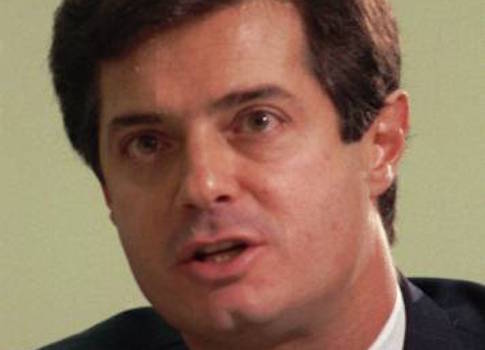Donald Trump’s newest campaign surrogate previously came under congressional scrutiny for extracting large sums from lobbying clients through arrangements that he admitted amounted to "influence-peddling."
Veteran Republican consultant Paul Manafort, who appeared on NBC’s Meet the Press on Sunday in his new role as a top Trump campaign adviser, came under scrutiny in the late 1980s for securing federal housing subsidies for clients that paid his firm hundreds of thousands of dollars.
"You could characterize this, in a narrow sense, as influence-peddling," Manafort admitted in congressional testimony on the scheme.
While the episode took place more than a quarter-century ago, it underscores the rhetorical challenge for Trump—whose campaign is in large measure a backlash against entrenched "beltway" interests—in elevating to a senior campaign role a long-time lobbyist and political insider.
Lobbyists "are people that don’t necessarily love our country," Trump has said in the past. "We have to stop it. We have to stop it."
The Trump campaign did not respond to a request for comment on this story.
Before Manafort’s promotion late last week, which elevated him to the campaign’s third-ranking position, he was working to secure delegates as the Trump campaign tries to lock up a majority before the Republican convention in July.
Manafort brought a wealth of political experience to the campaign. "The fact that Trump hired him is a serious move forward," Scott Reed, a top political strategist for the U.S. Chamber of Commerce and the manager of Republican Bob Dole’s 1996 presidential campaign, told RealClearPolitics.
"Paul is a proven vote counter, he knows how to strategically move a campaign," said Reed, who worked directly with Manafort on the Dole campaign.
Manafort advised or worked for every Republican presidential nominee from Gerald Ford to John McCain. While that wealth of experience is expected to be a major asset for Trump’s campaign, it also carries some political baggage.
The Housing and Urban Development scandal of the late 1980s is one potential albatross. It brought to the fore relationships between lobbyists and clients that fit neatly into populist attacks on members of a profession devoted to securing favorable government treatment—for a price.
The HUD scandal involved allegations that Americans typically associate with unseemly Washington deal-making. Manafort admitted as much in his congressional testimony, though he went on to defend the practice as indispensable to the legislative process.
At issue were federal subsidies for low-income housing units in southern New Jersey. A development there enlisted the services of Manafort’s lobbying firm, Black, Manafort, Stone & Kelly. The firm connected it with HUD officials in Washington, and received $326,000 in fees for its work.
The development eventually received fast-track consideration from the department. It landed $31 million in taxpayer support.
According to HUD’s inspector general at the time, former department officials, other members of the Reagan administration, and their business associates entered into 55 such arrangements, resulting in the disbursement of $413 million in federal housing subsidies.
Manafort was not just lobbying for such subsidies; he stood to personally benefit from them, according to a New York Times report on the scandal. He was a partner in the development that he helped secure federal backing, the Times reported.
The arrangement drew bipartisan criticism at the time. According to former Rep. Tom Lantos (D., Calif.), who chaired a House panel that investigated HUD’s subsidy selection process, that process "had all the competitiveness and suspense of professional wrestling."
Sen. Charles Schumer (D., N.Y.), then a House member, said subsidy selection decisions were "made not on the merits, but … on the politics.''
When the late Jack Kemp took over as HUD secretary in 1989 under President George H.W. Bush, he moved to shutter the program. Kemp cited "the enormity of the losses incurred, high patterns of abuse and the failure of the program to benefit the needy."
